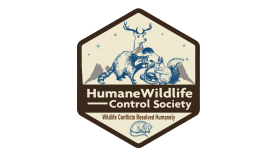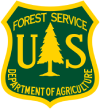Humane Wildlife Control in Lansing, MI
The Humane Wildlife Control Society recommends non-invasive solutions to resolve human-wildlife conflicts. This includes:
Determining if the issue needs to be addressed at all
Opting for preventative measures first
Opting for wildlife exclusion as opposed to trapping
If trapping is the only way to solve the problem do so humanely
The Humane Wildlife Control Society screens candidates prior to recommendation. Our process requires any company we recommend to meet the following criteria:
Is properly licensed in Michigan for wildlife control
Carries appropriate business licenses and insurance
Complies with all Michigan laws and regulations for wildlife control
Adheres to the humane principles listed above.
In Lansing, Michigan we recommend Humane Wildlife Removal Lansing for professional wildlife control services. This is a private company that charges for their services.
Contact Information:
Michigan Animal Control, LLC
517-219-1075
If you have any wildlife issues that can be handled by the state government agency for free, the Michigan Wildlife Commission can help.
State Contact Information: 517-284-6057
The State Department of Agriculture may also be able to address your wildlife problem for no charge.
USDA Contact Information: (800) 292-3939
Responsible and Humane Animal Management in Lansing, Michigan Lansing, Michigan, is a city where urban development meets natural landscapes, creating a habitat for wildlife such as raccoons, squirrels, opossums, skunks, and birds. As the city grows, interactions between humans and wildlife have increased, sometimes leading to conflicts. The City of Lansing is committed to promoting responsible and humane animal management practices that prioritize the well-being of both residents and animals while preserving the ecological balance of our community. What is Humane Animal Management? Common Wildlife Issues in Lansing Raccoons: Known for scavenging through trash or seeking shelter in attics and crawl spaces. Squirrels: May damage property by chewing wires or nesting in chimneys. Opossums: Often found in yards or under decks, sometimes causing minor disruptions. Skunks: Recognized for their strong odor, they may dig up lawns or take refuge under structures. Birds: Species like pigeons or starlings may nest in vents or eaves, leading to noise or blockages. Principles of Humane Animal Management Prevention: The best way to manage wildlife conflicts is to prevent them. Secure garbage bins, remove outdoor food sources, and seal potential entry points to your home, such as gaps in roofs, vents, or foundations. Exclusion: Use humane exclusion methods to keep wildlife out. Install barriers like chimney caps, mesh screens, or fencing to prevent animals from entering your property. Habitat Modification: Make your property less attractive to wildlife by removing potential shelters, such as woodpiles or dense vegetation, and using deterrents like motion-activated lights or sprinklers. Non-Lethal Removal: If wildlife has already entered your property, consider using live traps to capture and relocate the animal. Always follow local regulations and consult professionals to ensure the animal’s safety and survival. Professional Assistance: For complex situations, contact licensed wildlife control professionals who specialize in humane methods. These experts can safely resolve conflicts and provide guidance on preventing future issues. Why Humane Animal Management Matters Compassionate Treatment: Ensures animals are treated with respect and care. Ecological Health: Protects wildlife’s role in maintaining healthy ecosystems. Public Safety: Reduces risks by addressing the root causes of conflicts. Legal Compliance: Ensures adherence to local, state, and federal wildlife protection laws. Lansing’s Commitment to Humane Practices How Residents Can Help Learn about local wildlife and humane management practices. Secure your property to prevent attracting animals. Support local wildlife rehabilitation centers and conservation initiatives. Report injured or orphaned wildlife to licensed professionals for care.
Humane animal management focuses on resolving conflicts with wildlife in a way that minimizes harm to animals and respects their role in the environment. This approach emphasizes non-lethal methods, such as prevention, exclusion, and habitat modification, to address issues effectively and compassionately. By adopting these practices, we can coexist with wildlife while safeguarding public health and safety.
Lansing’s mix of urban and natural environments often leads to encounters with wildlife, including:
The City of Lansing encourages residents to address wildlife conflicts using the following humane strategies:
Humane animal management is essential for several reasons:
The City of Lansing is committed to fostering a community where humans and wildlife can coexist harmoniously. Through education, resources, and partnerships with local organizations, we aim to promote humane animal management practices that protect both residents and animals.
Responsible wildlife management requires community involvement. Here’s how you can contribute:







